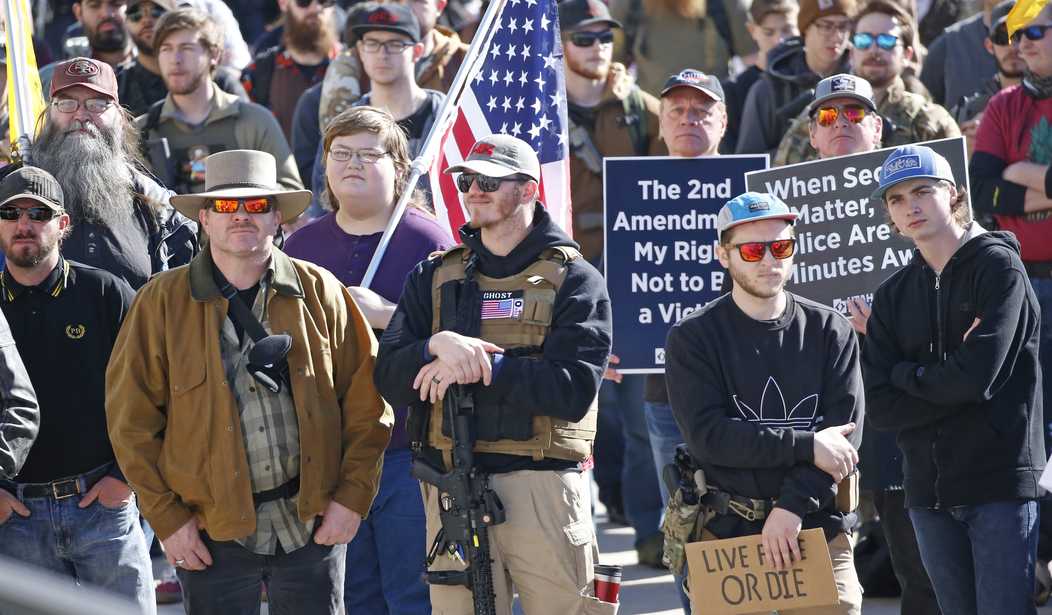There is probably no area in politics where social science has been more rigorously exploited as a tool to promote personal agenda than the topic of citizen gun ownership. For decades, contrary findings have been put forth by “experts” to support or disparage the social desirability of Americans’ right to keep and bear arms. Whether guns “cause” more crime or less crime has been the big question here, because its answer was somehow believed relevant to the ultimate interpretation of the limits of the Second Amendment.
The recent SCOTUS decision in New York State Rifle & Pistol Club v. Bruen has essentially ended these shenanigans.
The case’s specific victory for gun possession outside the home for self-defense has been rightfully lauded as the central positive Second Amendment take-away. However, the other major ruling from the case—that the “means-ends test” used by lower courts in deciding the limitations to the 2A is no longer allowed—seems to have been given far less attention. I will focus on it here because it will have the most far-reaching effects on future interpretations of the 2A, and perhaps other constitutional analyses as well.
The traditional means-ends test used by courts first looks at whether a government’s interest in over-riding an individual right is reasonable, and then at whether the government’s proposed actions are arguably a rational method for furthering the government’s interest goals. A third, subsequent component of the means-ends test often can also be applied—whether a state’s achievement of its same interest can be met by a less restrictive over-ride of an individual right.
The means-ends test in relation to the regulation of citizen gun ownership can almost always put forth a “reasonable” interest for the state because guns can injure and kill the state’s citizens through criminal misuses, suicides, and accidents. Likewise, limiting citizen access to guns could conceivably always be seen as a rational strategy to reduce these harmful outcomes. And it will almost always be plausible that there is no less restrictive means to restricting gun ownership or possession that will result in the same level of injury and death avoidance.
Recommended
It is the courts’ use of the means-ends tests in 2A cases that has instigated the “experts” to feverishly pursue, through the most sophisticated econometric and other methodologies extant, questions that they erroneously believe are important to proving the validity of the 2A. “Does the number of annual self-defense uses involving a firearm exceed the criminal misuses of guns?” and “Do increased concealed weapon permits cause crime to increase or decrease?” come to mind.
In fact, the latter question was a central focus of a “Friend of the Court” brief in Bruen, and the discussion was all about whose methodology was smarter. Research papers on both sides of the argument were essentially ignored, except by Justice Breyer in his dissent (advocating that his cherry-picked research concluded that increased concealed weapons permits facilitate crime) and in Justice Alito’s concurring opinion that devastatingly critiqued Breyer’s dissent (arguing only that Breyer ignored contrary evidence to his conclusion and not that any such evidence is relevant to the constitutional question at hand).
Indeed, for so long it has been the means-ends test that has pushed advocates for and against the 2A to find “correct” conclusions to their personal agenda on the gun issue. No longer will there be a Democrat Party-inspired Center for Disease Control effort to fund allegedly non-biased research documenting “gun violence” as a public health hazard, or prompting pediatricians invading their patients’ parents’ privacy by asking whether there is a gun in the home. The National Rifle Association will no longer have to overstate the validity of conclusions of certain studies that support its pro-gun positions, such as they have done for so many years with Richmond VA’s “Project Exile” study that had no control group. The extremely strong tendency to use social science as a political tool to further one’s position on the gun issue is, thankfully, no longer constitutionally relevant and perhaps finally gone.
As well, unhinged Hollywood tweets about “gun violence” are forevermore deemed irrelevant by SCOTUS. Even if the Bruen case causes the death of more children in the future, or increases mass shootings, or “puts democracy in peril” (a particular favorite of the Left, no matter what the adverse SCOTUS decision is), none of it is material to properly interpreting the Second Amendment.
Justice Thomas’s majority opinion in Bruen may ultimately serve as his most important words ever—it is the original historical intent and context of the constitutional issue being examined by the courts that must be paramount.
Gary S. Green, Ph.D. is an academic criminologist and retired Professor of Government at Christopher Newport University in Newport News, VA.

























Join the conversation as a VIP Member